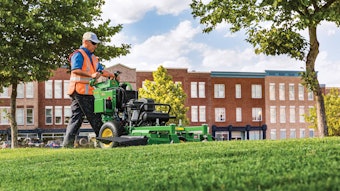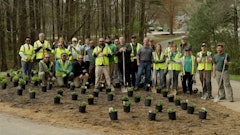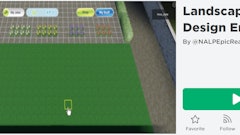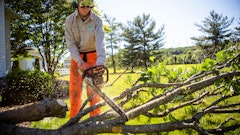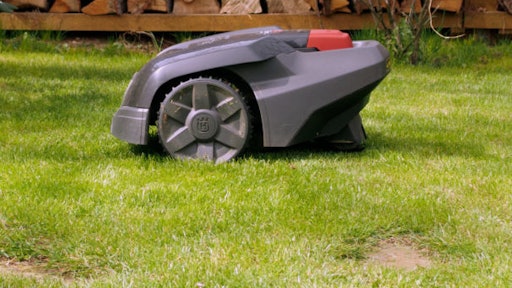
There are three kinds of thinking: inside the box, outside the box and no box.
This according to Michael Hostetler, who specializes in teaching strategy, decision-making, leadership, innovation and change management in the MBA program at Cornell University. He spoke at the National Association of Landscape Professionals’ Leadership Academy, conducted in partnership with Cornell University’s SC Johnson School of Business.
The landscape company of the future looks bright. He challenged the room of approximately 20 landscape professionals to use no-box thinking to discuss the landscape company of the future. He defines no-box thinking as having no constraints, no limits and no judgement; all ideas are fair game.
The room brainstormed, coming up with the following insights about the landscape company of the future:
- The speed of data sharing in the digital world will lead to a power shift in the landscape industry where consumers will drive how providers offer services (just-in-time services, sustainability practices, etc.).
- Robotics will replace human workers due to worker shortages, disinterest, unreliability and fragility.
- Industry consolidation will increase, which will increase the size of dominant players and put pressure on profitability.
- Land degradation, water shortages and climate zone shifts will impact the choice of plants, and how landscapes are designed and maintained.
- Ground and equipment sensors, self-driving equipment, robots and analytics will reshape landscape work and shift production from labor-intensive activities to monitoring and problem intervention.
- Landscape companies will need to change the skills they hire for, including information technology, customer relationship management, data analytics, finance, brand management, civil engineers, landscape architects, botanists and arborists, to remain relevant.
- Landscape companies will need to offer integrated services, either through acquisition, internal growth or strategic alliances.
- Travel will increase the spread of pests and plant diseases, which will impact landscape and design and management practices.
- Landscape companies will need to better understand their customers and the segments they serve.
- Landscape companies should lead technological innovations and education for the industry.
The landscape companies of today will look totally and completely different in 10 years, the group deduced. They said: “Those who can adapt, think with no bounds and redefine themselves will be the ones who survive.”






